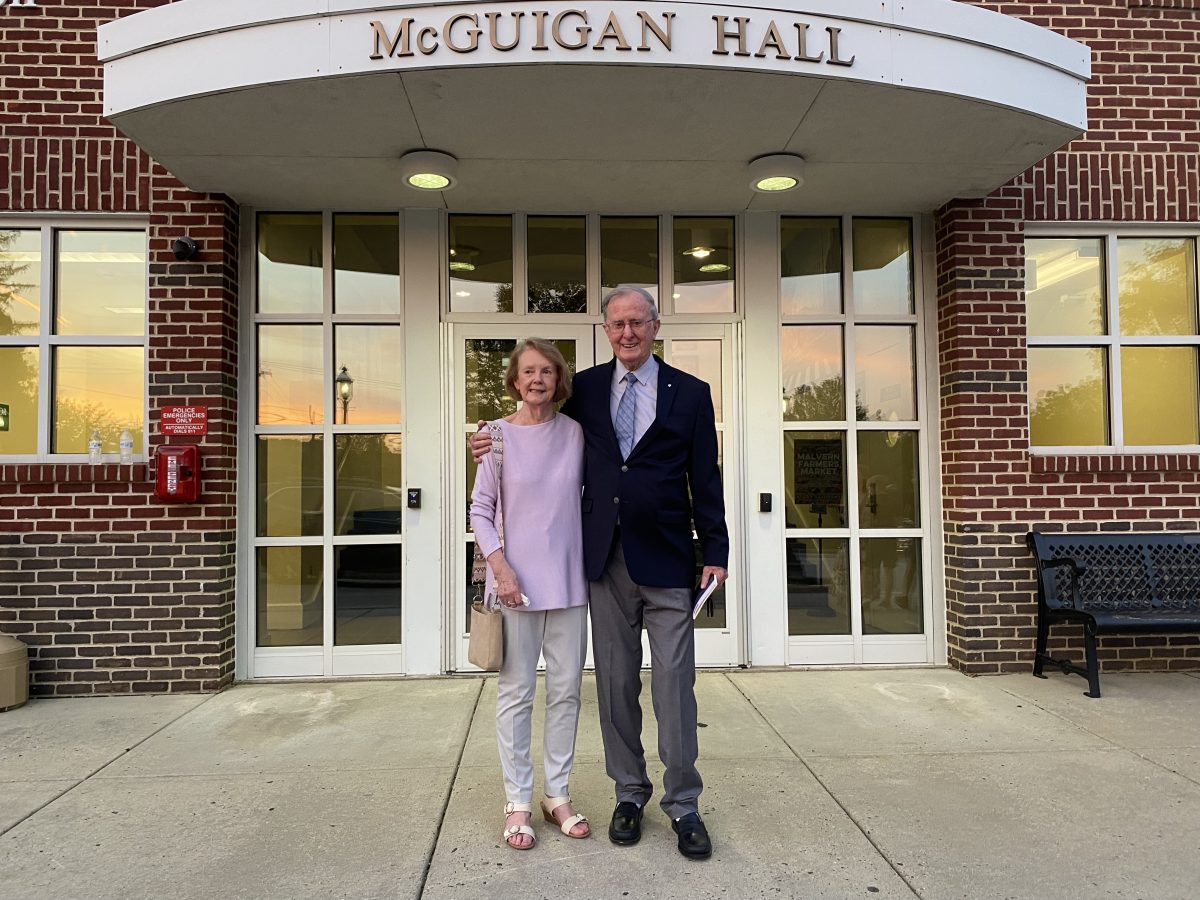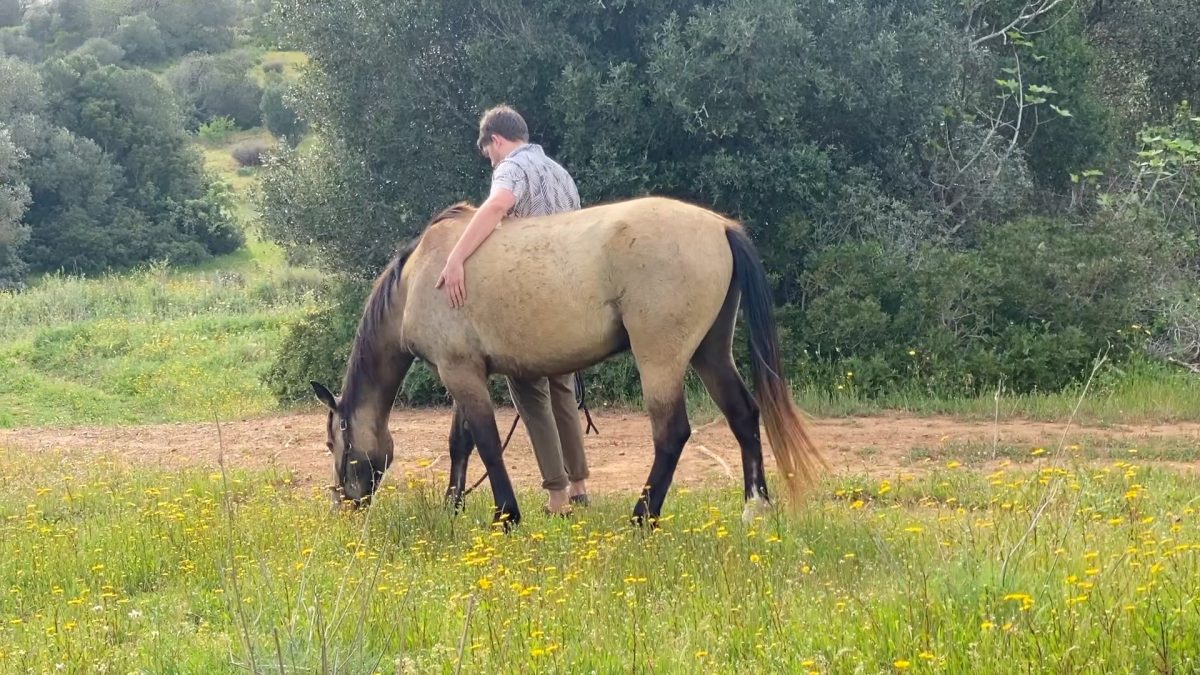They start gathering in the lobby of McGuigan Hall in the evening on Tues, Sept 7, 2023, mostly white haired men and dye haired women. They are members of the Borough Council, Police Chief Lou Marcelli, Public Works Superintendent Ira Dutter, Borough Manager Tiffany Loomis, other citizens and even a few elementary school kids.
Paintings of Malvern from an earlier era by local artist Randall Graham line the walls – with one exception, which is covered with a grey tarp.
The crowd grows to thirty or forty. There is light laughter, shoulder pats, and handshakes as they watch the double glass doors for the reason they’ve gathered this Tuesday night.
A few minutes before 7:00 Pat McGuigan, grey haired with a military bearing only slightly softened by time, walks through the double glass doors and up a few steps to the main lobby. He is accompanied by Margaret McGuigan, slim, soft-spoken and elegant. They chat with friends in the crowd. They hug their children and elementary aged grandchildren.
The Borough of Malvern started life as the “West Chester Intersection”. The last stop after the last stop on a train line, originally known as The Philadelphia Main Line, now just “The Main Line”, brought the wealthy out of 1800’s Philadelphia to escape summer heat.
The “West Chester Intersection” became Malvern Borough in 1873. Unlike other stops on the line, the Malvern station offered not mansions, but a transportation hub for local farmers to bring their produce and pick up supplies. Eventually, as farms gave way to estates surrounding the Borough, Malvern Borough became a blue collar village.
It stayed that way through the 1900’s until, between the 1950’s and the 1980’s, while the rest of the Main Line modernized, Malvern slowly slipped behind. King Street had dowdy storefronts and no streetlights. Sidewalks were in disrepair or absent. The one bookstore sold porn. Rust and rattles grew on the bridge built over the train tracks to connect one part of town to the other. The water system was barely meeting state codes.
At 7:00 PM sharp, Mayor Zeyn Uzman steps up to the covered picture. He tells the crowd why the Borough Hall was named for retired US Army Command Sergeant Major Pat McGuigan, who came to Malvern in 1982 and saw, as Pat put it: “a great little town that just needed to be brought into the 20th century.”
The Mayor removes the cover and reveals, not a painting, but a plaque with photographs and text describing just a few of Pat’s accomplishments for the Borough: A new bridge, a new water system, new sidewalks, new street lights, refreshed store fronts, and the most significant – not just for the Borough – but the whole country: the rescue of the Revolutionary War Paoli Battlefield from developers. He talks about Pat’s Malvern journey, from joining the Planning Commission to leading it, to joining the Borough Council and leading it, to, when the town faced bankruptcy, being recruited as Borough Manager and turning it around to the point of reducing taxes four times in five years.
While the Mayor talks, Pat stands stiffly facing him. (His legs are hurting today, but he’ll be damned if he’ll admit it or give in to them. And he has always disdained this kind of attention – You do things for the common good, not for personal accolades.) But just for a moment, as Margaret looks at the ground, the crowd, the plaque – anywhere but her husband- the Mayor sees some mist in Pat’s eyes.
When the Mayor has finished, when the applause has died down, Pat speaks with a voice softened by 89 years. He reflects on 30 years of military service, a wife who supported him through myriad moves while raising 7 kids, and a town where he bought a house, sight unseen.
He talks about the need for individual citizens – everyone – to contribute to their town, to care for it, to keep it as it was for him since 1982, “the United States of America the way it should be.”

